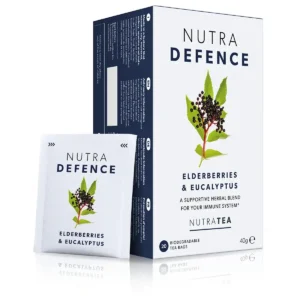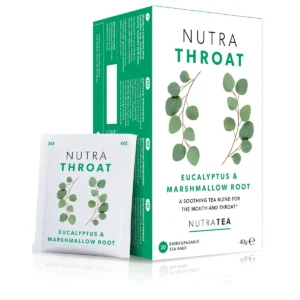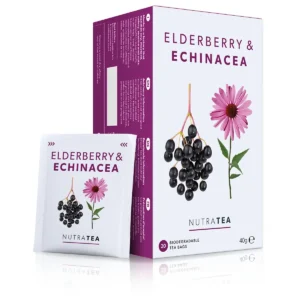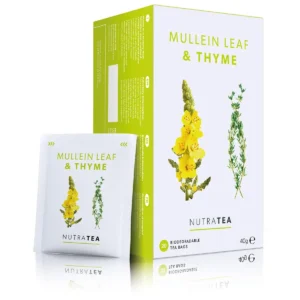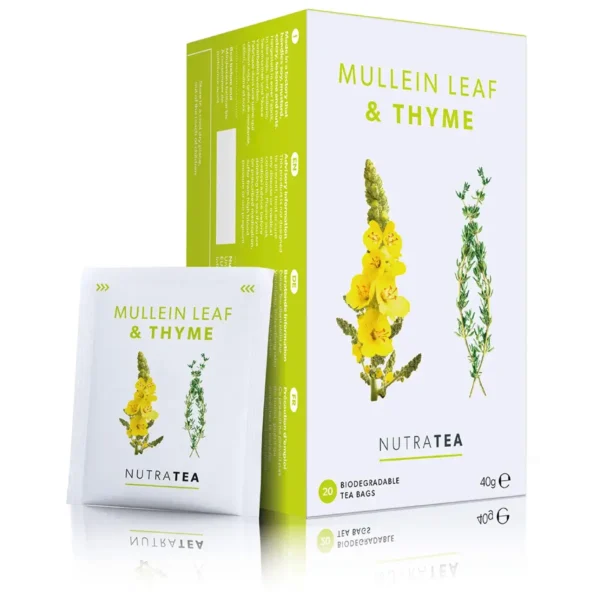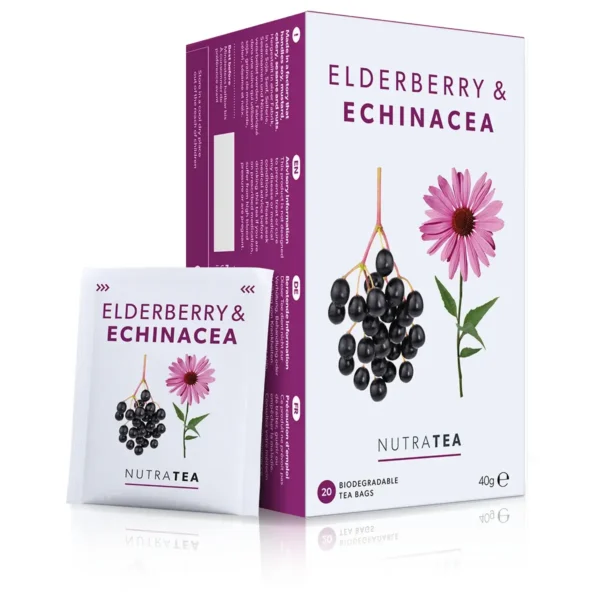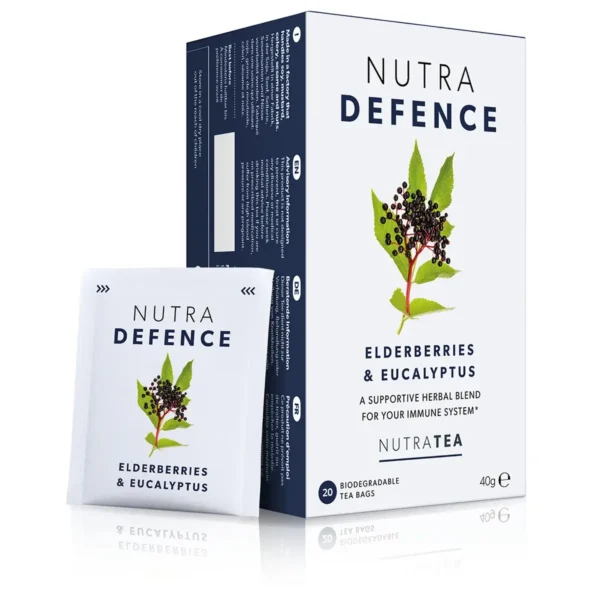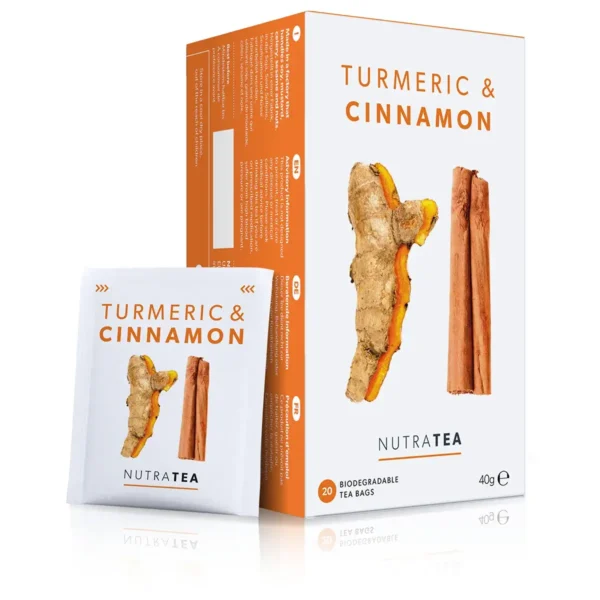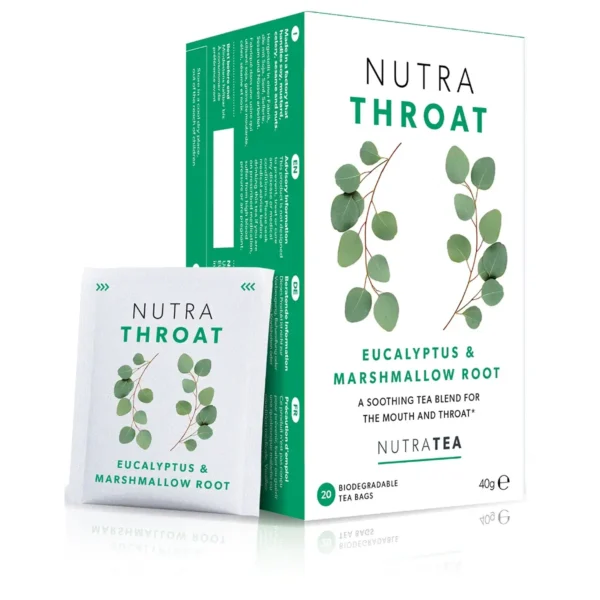NutraBlog
Cold weather change- 5 home remedies for influenza and colds

It’s now October, which means cold and flu season is nearly upon us. With colder temperatures, decreased sun, and viruses circulating, the next few months will become breeding grounds for germs.
In fact, it’s estimated that the influenza virus causes around 31 deaths in every 100,000 people over the age of 65 in Europe. Alongside colds, this virus can impact the quality of life of anyone of any age, setting you back from work and studies.
It’s likely this coming winter, you’ll know someone affected by a cold or influenza virus. Learn how to minimise your risk of common viruses, with our suggestions and home remedies for influenza and colds below.
Why are colds and viruses popular in the winter?
When you were young, you may have been told by your mum to wear a hat or wrap up to not “catch a cold.” There may have been a greater reason behind it. Irrelevant about layering up or not, cold weather can often slow down your immune response, especially if you have low vitamin D levels. In particular, your nose is compromised, becoming more susceptible to viruses and germs entering.
Moreover in the winter months, many of us tend to spend more time indoors to stay warm. However being indoors in enclosed spaces limits the circulation and ventilation, increasing your exposure to germs and viruses. Plus germs and viruses land on surfaces increasing your chances of touching and catching them.
Home remedies for influenza and colds to try
Be a step ahead of the flu season and increase your protection factor by trying out the following tips and home remedies for influenza:
1. Drink bone broth
When you’re down with the cold or flu or just want to avoid falling sick, drink warm bone broth in the winter. Chicken or beef broth is a good way to stay hydrated and also helps ease congestion in your sinuses. Moreover, bone broth is also high in protein and contains essential minerals such as potassium and sodium, which help rebuild immune cells and provide you with energy.
2. Increase your zinc intake
Try to get as much zinc as possible from your diet in the coming colder months. This mineral is essential to your immune system, helping your body produce killer white blood cells.
A meta-analysis of several studies has also shown that zinc may play a crucial role in alleviating flu and common cold symptoms. It’s believed zinc helps slow down the virus and reduces how much it multiples. You can obtain zinc naturally from the following:
- Shellfish
- Beans
- Nuts
- Seeds
- Chickpeas
- Eggs
- Red meat
If you don’t feel you can obtain enough zinc from food, then try zinc supplements.
3.Sleep
It is not quite a remedy, but getting 7-9 hours of sleep every night is essential. Sleeping plays an important role in helping your body redirect energy and move it to your immune system, helping your body fight off viruses more quickly.
4. Use a steamer
Inhaling steam from a steamer or warm pan of water can help soothe your sinuses, nose, throat, and lungs. The hot water vapour in the steam can help loosen mucus congestion and allow you to breathe more easily. This is often a great natural remedy for common cold symptoms such as a dry cough, irritated nose, and tight chest.
Top Tip: Add a few drops of essential oils to the hot water to benefit from additional antiviral and antioxidants.
5. Drink honey and lemon
Hot lemon honey is a natural remedy that can support throat pain and ease up the symptoms of coughs in adults and children. Honey in particular has a ton of antibacterial and antimicrobial property, and lemon is high in vitamin C which plays an important role in your immune function.
What is the best tea for common cold?
One of the best home remedies for influenza and colds is drinking herbal teas. While we could have included this above, we feel immune support tea deserves a section on its own. The truth is these teas aren’t a quick fix cure for colds; it’s the herbs inside them that can help prevent and reduce their intensity.
If you’re looking for a boost immune system tea, then try the following:
NutraDefence
NutraDefence is one of our caffeine-free premium blends, and it is a good tea for colds. This herbal tea contains immune-boosting herbs such as liquorice, mullein, elderberry, and ginger, which support your body’s natural defences and immune function. Ginger in NutraDefence helps maintain immune function in the respiratory tract, and thyme helps support the respiratory system. Calendula, Mullein, Eucalyptus, and thyme also help support throat and mouth health.
NutraThroat
A great flu tea that helps soothe the symptoms of influenza and colds is NutraThroat. The main herbs in NutraThroat help maintain good mouth and throat health. In particular, marshmallow root, peppermint, and eucalyptus have a soothing effect on the throat, vocal cords, and pharynx. Slippery elm in NutraThroat helps act as a form of mucilage, which supports the mucous membranes and traps bacteria. Ginger and liquorice help soothe and ease the respiratory tract.
Elderberry & Echinacea
Elderberry & Echinacea is a caffeine free herbal tea that is high in antioxidants and supports your immune system. Both herbs in Elderberry & Echinacea contribute to the proper function of your immune system. Echinacea helps support the maintenance of lower urinary tract health and has a soothing effect on your throat and vocal cords. Whereas elderberry is high in naturally occuring antioxidants which help protect your white blood cells and tissues from oxidative stress.
Mullein Leaf & Thyme
Mullein Leaf & Thyme is one of the best teas for respiratory issues. Caffeine-free, this respiratory support tea helps with your body’s natural defences. Thyme has a pleasant, soothing effect on your mouth and throat, easing up dry coughs. Mullein leaf also supports other systems, such as kidney and bladder function.
Turmeric & Cinnamon
Another flagship tea of ours that can be included in home remedies for influenza and colds is Turmeric and cinnamon. Turmeric helps support blood circulation, liver health, lung health, and the upper respiratory tract. Cinnamon helps with blood circulation and the heart and is high in antioxidants, helping the body fight off viruses.
Stay aware, protect yourself and stay safe
To recap, the cold, chilly temperatures are nearly here, which means you should do everything you can to look after your health and practice good hygiene. In the winter months, we’re more susceptible to spending more time indoors, where we’re more in close contact with germs, bacteria, and viruses in the air and on surfaces.
To lower your risk of getting a cold or the flu, there are a few natural preventative measures and remedies you can add to your routine. Apart from the basics like getting sufficient sleep and looking after your diet, try increasing your zinc intake, using steamers, drinking hot lemon honey, and adding nutrient-rich herbal teas to your day.
Want to know more about how to look after your immune health? Check out our post on how to boost your immune health this Autumn.

